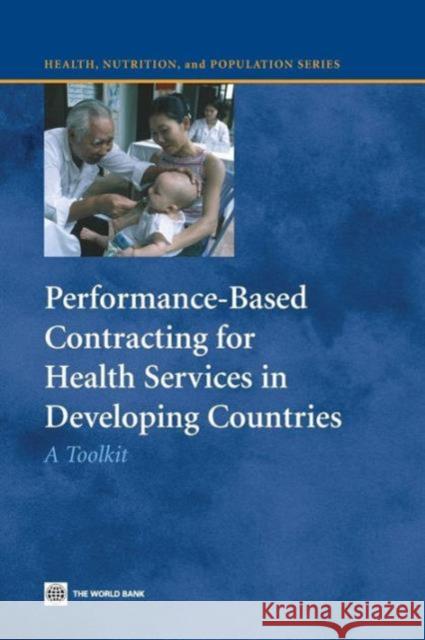Performance-Based Contracting for Health Services in Developing Countries: A Toolkit » książka
Performance-Based Contracting for Health Services in Developing Countries: A Toolkit
ISBN-13: 9780821375365 / Angielski / Miękka / 2008 / 224 str.
Despite the presence of effective interventions, many developing countries are not on track to achieve the Millennium Development Goals for health due to the inadequate delivery of health services to the population. Contracting, particularly with nonstate providers, can improve the situation. This 'Toolkit' draws on a review of 14 real-life examples of health services contracting in different developing countries to conclude that performance-based contracting can rapidly secure improvements in the coverage and quality of publicly financed health services. Contracting is a mechanism for a financing entity to procure a defined set of services from private to nongovernmental sources. Performance-based contracting hinges on a clear set of objectives and indicators, systematic data collection to assess contractor performance, and some consequences for the contractor (rewards or sanctions) based on performance. The systematic approach described in the 'Toolkit' provides guidance on how to effectively contract, and it addresses issues, such as how to - Have a constructive dialogue with all stakeholders; - Define health services, in terms of what services are to be delivered, where, the number of beneficiaries to be serviced, equitable access, and quality of care; - Design appropriate monitoring and evaluation systems; - Select contractors fairly and transparently; - Draft contracts and bidding documents; - Carry out the bidding process; and - Arrange for effective contract management. The practical "how-to guide" for successful contracting of health (and similar) services will be particularly useful to staff of government agencies, insurance companies, social insurance funds, nongovernmental organizations, faith-based organizations, and private health care providers, as well as international development partners.











